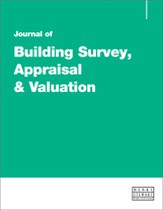An introduction to compulsory purchase powers for development and infrastructure schemes
Abstract
This paper is an introduction to the history behind the use of compulsory purchase powers, its uses today by government agencies and utility providers, including objecting to their schemes, and comment on how these powers might be used in the future to deliver housing policy if the ‘open market approach’ fails. The Government’s use of compulsory purchase powers to enable infrastructure schemes to be completed took off in the 19th century with the expansion of the railway network, leading to the first major legislation to regularise the legal framework in 1845. Since then there have been multiple changes, including bespoke powers for the various utility providers (gas, water, electricity and telecoms). The basic principles behind property owners’ rights are common to all claims, known as the ‘Compensation Code’, but there are subtle, and at times, illogical differences in the detail of the approach to the valuation of losses. In the 1960s the Government used its powers of compulsory purchase to acquire land aggressively for the delivery of its housing policy, enabling more extensive construction of new homes than is being achieved today. The powers are there, and may be used again, to meet the Government’s ambitious housing policy targets.
The full article is available to subscribers to the journal.
Author's Biography
James Squier is a Fellow of the RICS and Consultant to Bidwells, Cambridge, with over 30 years’ experience in compulsory purchase work. Schemes include the Thetford Aqueduct, which provides Cambridge with its drinking water, HS1 acting for London & Continental Railways and dealing with development related claims in the electricity industry for UK Power Networks Plc. He also acts for property owners, for example the Elveden Estate, one of the largest lowland farms in the UK, relating to the Five Ways to Thetford Scheme, a project lasting 10 years from its design work to completion.
Citation
Squier, James (2018, December 1). An introduction to compulsory purchase powers for development and infrastructure schemes. In the Journal of Building Survey, Appraisal & Valuation, Volume 7, Issue 3. https://doi.org/10.69554/QIJO6779.Publications LLP
